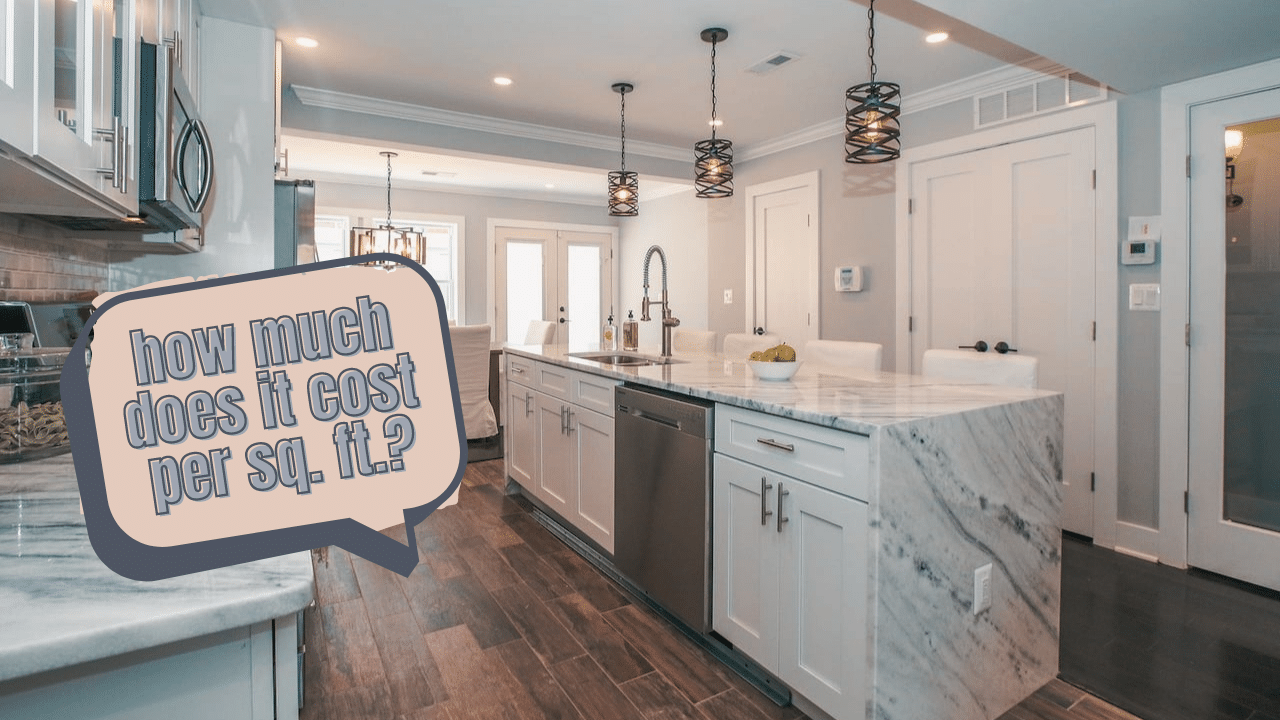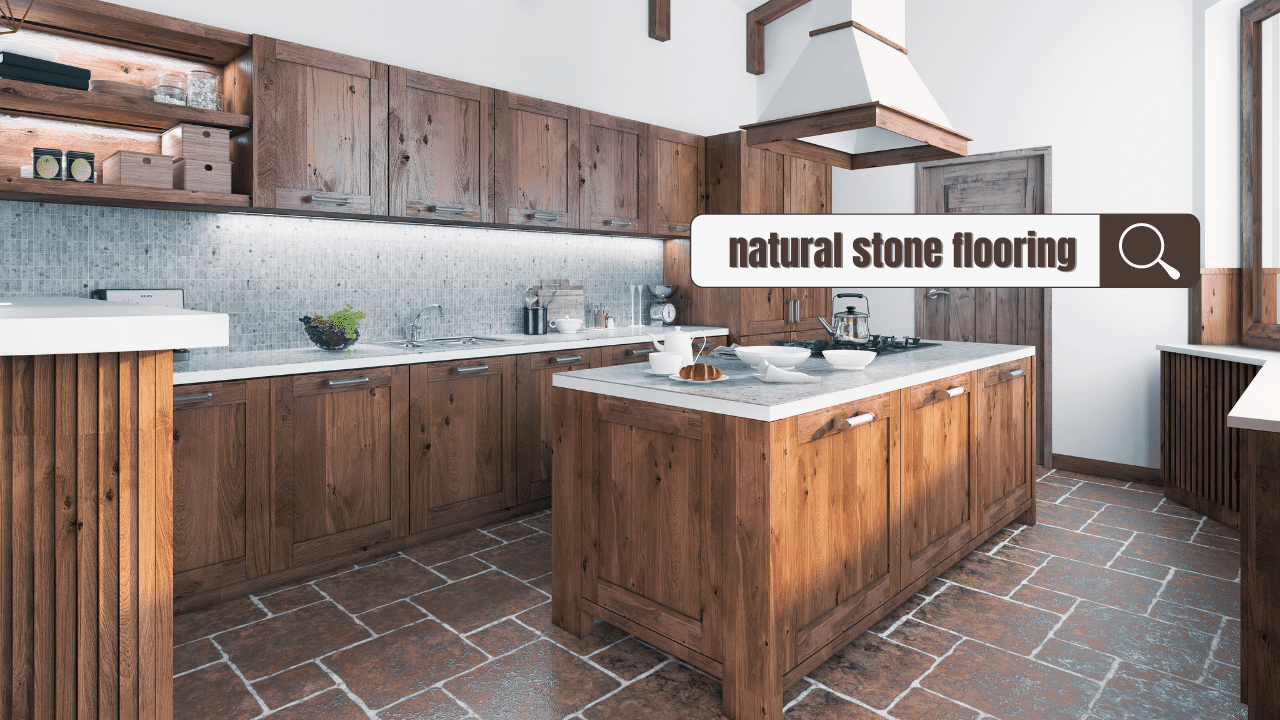Kitchen floors take up a hefty slice of your kitchen remodeling project budget. As such, it's recommended that you first determine your budget, so you don't end up overspending. Standard kitchen flooring material may cost you up to $28 per square foot, with the lowest being $3. On average, prepare to cover at least $10 per sq. ft.
We've prepared this guide to give you the most updated kitchen flooring prices and installation costs so you can prepare your kitchen makeover budget accordingly!
Kitchen Floors: The Importance of Durability
Remember that kitchen floors play a crucial part in your day-to-day life, and it is often exposed to heavy foot traffic, frequent spills, and stains. That said, durability is one aspect you need to prioritize in choosing new kitchen flooring.
Another question you need to keep in mind is: "Which flooring material is best for my budget?" As you choose the possible kitchen flooring choices that fit your budget, you can select the best material for your needs.
Kitchen Flooring Cost

Kitchen flooring replacement starts from $3 to $28 per square foot, depending on your preferred material.
Homeowners on a budget may want to look into sheet vinyl ($3 to $6 per sq. ft.). If you’re considering a high-end kitchen remodeling project, natural stone floors will add a luxurious touch to your kitchen (starting from $16 to $27 per sq. ft.) The estimated costs do not include the additional expenses, such as the preparation work or underfloor heating.
Fortunately, there are several options you can consider in different designs, styles, and textures. Other essential cost considerations are your chosen installation method, production cost, and professional labor fees.
Important Note: According to the National Kitchen + Bath Association, the average kitchen size ranges from 103 to 238 square feet. As such, the kitchen flooring costs we've included in this article are enough to cover 200 square foot spaces.
Kitchen Flooring Cost Factors to Consider
Here’s a brief list of the cost factors you’ll need to keep an eye on as you push through with your kitchen flooring project.
Types of Kitchen Floors & Their Average Costs
Ceramic, Porcelain, and Natural Stone Tile
Tile is a cost-effective yet stylish material for your new kitchen floors. Depending on their budget, homeowners can choose from ceramic, porcelain, or stone floor tile ideas.

Here are the average costs of the most common tile floors:
Solid, Engineered and Reclaimed Wood Floors
Wood kitchen floors are gaining more traction by the day, thanks to their timeless appeal and beauty. You can select solid hardwood, engineered wood, or reclaimed wood flooring materials.
Here’s how much it will cost you:
Sheet Vinyl and Luxury Vinyl Tile
Another popular kitchen flooring option is vinyl sheets, which can easily mimic the appearance of wood or natural stone. The best part? It doesn't come with high maintenance! You can choose from cheap sheet vinyl or invest in luxury vinyl tile (LVT), sometimes called luxury vinyl plank (LVP).
Here's a quick overview of the average costs:
Linoleum and Cork Kitchen Floors
Cork and linoleum are eco-friendly flooring options for homeowners who want greener homes. These materials are made from organic and renewable ingredients. It's not only highly sustainable, but it is also renowned for being versatile and beautiful.
Laminate Kitchen Floors
Laminate floors take on the appearance of hardwood or tile floors but with a lower price tag. Many DIY enthusiasts choose laminate floors for their flooring projects at home. The surface of laminate flooring is highly resistant to stains and scratches. Accordingly, its clean-up is also a breeze. Laminate floors start from $2 to $4 per square foot.
Polished Concrete Kitchen Floors
With its sleek contemporary appearance, it’s no wonder polished concrete is increasingly more popular by the day. This smooth, high-luster floor is regarded as the best no-wax flooring material in the market today. It will cost you anywhere between $4 and $16 per square foot.
On a Budget: The Best Inexpensive Kitchen Flooring Options
You don’t have to break the bank in choosing the best flooring materials for your kitchen.
Vinyl
If you're on a tight budget, you may want to go with vinyl (LVT). This option allows you to mimic the look of wood or natural stone for your floors without the hefty price tag and the heavy maintenance that comes with it.
However, it may just not be your cup of tea. For instance, a dropped knife will damage its surface. The material is also made from PVC; hence it's not for the eco-conscious.
Ceramic Tiles
Ceramic tiles are another cost-effective flooring option to consider for your kitchen project. It is available in a wide range of colors and patterns. Not to mention, its finish is durable and can be easily cleaned.
It’s one of the cheapest flooring options you may consider for your kitchen, along with laminate tiles. Since ceramic tiles are known for their longevity, you can count on your ceramic tile flooring in the long run.
Porcelain Tiles (Best Value for Money)
In many kitchens, porcelain tiles offer the best value for your money. Since the kitchen is a heavy-traffic area that’s often exposed to spills and splashes– porcelain material has some qualities that can withstand such messy situations.
And if you don’t have the time to tend to your floors thoroughly, cleaning porcelain is relatively easy and won’t take up too much of your time. However, porcelain floors may not fit your home's aesthetic as well as your budget. We believe it gives the most bang out of your buck– but it's not the cheapest option in the market.
Though porcelain can mimic other flooring materials, it doesn't have the individuality of real timber or natural stone.
Final Thoughts
It's best to come prepared when it comes to setting a budget for your kitchen flooring project. It doesn't stop at the material costs. You will also need to consider other factors, such as professional installation and other additional expenses. (Related: The Best Types Of Kitchen Flooring For Your Needs)
To avoid falling short with your budget, always talk to your contractor about their fees (and uncover any hidden expenses).
